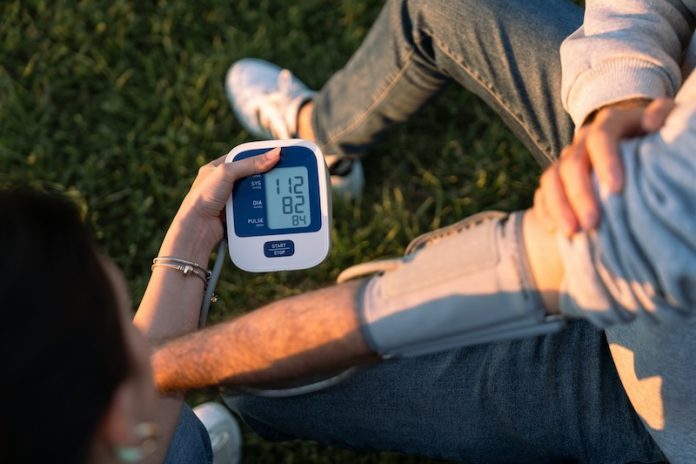
Imagine visiting your doctor and having your blood pressure checked. You’re probably familiar with the machine that wraps around your arm, squeezes a bit, and then gives you two numbers.
These numbers, representing your blood pressure, are important indicators of your heart health. But recent research suggests that one of these numbers might also reveal something crucial about your brain health.
The two numbers you get from a blood pressure reading are called systolic and diastolic pressure. The first number, systolic pressure, measures the force of blood against your artery walls when your heart beats.
This is usually the number doctors pay most attention to, as it’s strongly linked to the risk of heart disease. The second number, diastolic pressure, measures the pressure in your arteries when your heart is resting between beats.
However, a recent study led by Michelle R. Caunca and her team at the University of Miami has shifted some of that attention to the second number, the diastolic blood pressure.
Published in the journal Stroke, the study suggests that this often-overlooked number might hold vital clues about our brain health, particularly as we age.
The researchers wanted to see if diastolic blood pressure could be linked to the development of tiny scars in the brain, known as white matter lesions.
These lesions, although small, can have significant impacts on how the brain functions, potentially increasing the risk of dementia, strokes, and even falls.
To explore this, the team studied 1,205 people aged 50 and older, using MRI scans to detect the presence of white matter lesions in their brains.
These lesions can interfere with the brain’s ability to send messages through nerve fibers, which is crucial for everything from muscle movement to thinking clearly.
What they discovered was quite intriguing: participants with lower diastolic blood pressure (below 80) had fewer of these brain scars compared to those with higher diastolic pressure (above 90).
This finding challenges the traditional focus on systolic pressure as the primary concern for brain health, suggesting that diastolic pressure might be just as important, if not more so, in certain contexts.
White matter is composed of nerve fibers that act like highways in the brain, carrying information between different parts. When lesions form in this white matter, they can disrupt the flow of information, leading to problems with balance, memory, and overall cognitive function.
These disruptions can make everyday tasks more difficult and increase the risk of serious events like strokes.
By the time people reach their 60s, about 20% of them might have white matter lesions. The likelihood of having these lesions increases with age, and by the time people reach their 90s, most will have them to some extent.
The presence of these lesions is concerning because they are linked to cognitive decline and a higher risk of neurological issues.
The study found that the location of these lesions within the brain matters as well. Lesions in a specific area called the periventricular region, which is close to the brain’s fluid-filled spaces, were particularly associated with problems in thinking and memory.
This area appears to be especially vulnerable to the effects of high diastolic blood pressure, which may damage the small blood vessels that supply it.
So, what does this mean for everyday health? It underscores the importance of monitoring your blood pressure, including both the systolic and diastolic numbers.
While the focus has often been on keeping systolic pressure under control, this study suggests that paying attention to diastolic pressure could be equally important, particularly for protecting brain health as we age.
As we grow older, understanding and managing our blood pressure could be key to preserving not just heart health, but also cognitive function.
This research highlights the need to talk with your doctor about your blood pressure readings and what they mean for your overall health, including your brain.
Keeping an eye on that lower number might be more crucial than we previously thought, helping to ensure that our brains stay healthy well into our later years.
If you care about blood pressure, please read studies that black licorice could cause dangerous high blood pressure, and this common plant nutrient could help reduce high blood pressure.
For more information about blood pressure, please see recent studies about how coffee influence your risk of high blood pressure, and results showing this olive oil could reduce blood pressure in healthy people.
Copyright © 2024 Knowridge Science Report. All rights reserved.



